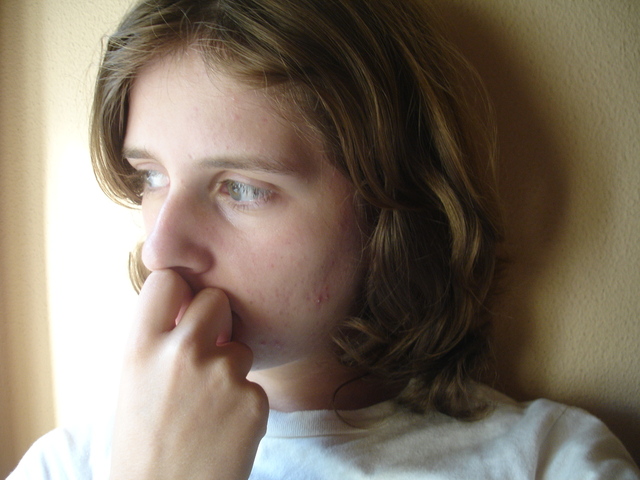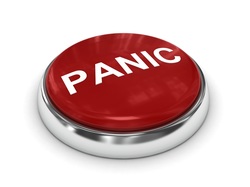How can I help you? |
-
Depression
-
Fears and Phobias
-
Anxiety Disorders
-
Panic Attacks
<
>
What are the main indicators of depression?
Everyone experiences feelings of sadness, disappointment, or just feeling “down” from time to time. Depression however refers to a range of mood disorders and other symptoms that are felt more intensely, they are more pervasive and longer lasting.
These distressing symptoms interfere with your day-to-day life and relationships.
These distressing symptoms interfere with your day-to-day life and relationships.
|
“All life is an experiment. The more experiments you make the better” |
The way depression makes you adopt an all or nothing thinking style is a unique and crucial part of understanding depression. Depression allows you generate seemingly hopeless outcomes to your situations and can make it almost impossible for you to see a way out of it.
When you understand that you are suffering a normal response to excessive levels of emotional introspection, part of the introspection is settled down, you no longer have that nagging awful ongoing thought of "What is happening to me?"
Finding new ways to gauge your depression can help to show you the shades of grey that will ultimately defeat the black and white thinking on which depression thrives.
Most people experience precursors to a depressive episode, recognising these precursors and using new tools and methods to manage your symptoms can help to alleviate or diminish the severity of the episode.
When you understand that you are suffering a normal response to excessive levels of emotional introspection, part of the introspection is settled down, you no longer have that nagging awful ongoing thought of "What is happening to me?"
Finding new ways to gauge your depression can help to show you the shades of grey that will ultimately defeat the black and white thinking on which depression thrives.
Most people experience precursors to a depressive episode, recognising these precursors and using new tools and methods to manage your symptoms can help to alleviate or diminish the severity of the episode.
Signs and Symptoms of Depression
"I'm so broken that I can feel it. I mean, physically feel it. |
The most common symptoms of depression include one or both of the following:
|
Solution Focused Therapy for Depression
As it's name suggests, the emphasis here is on finding solutions to your current problems and focusing on your future wellness rather than any past hurts. This is not to say that your past is ignored but the main emphasis is on teaching you new skills and keeping therapy brief and focused.
- What we do: (Behavioral therapy)
- How we think about things: (Cognitive therapy)
- How we relate to others: (Interpersonal therapy)
- How things are going to be better in the future: (Solution focused therapy)
- Getting our basic emotional needs met in the wider world
- Helping you find solutions to your immediate problems
- Hypnotherapy to discourage the re running of your old out dated unconscious patterns and to subconsciously install new programs to move you forward more easily.
The difference between a fear and a phobia?A fear is a subconscious response whereby we become scared and have little control when exposed to a particular trigger.
A phobia is an irrational subconscious response whereby we become terrified and have little or no control when exposed to a particular trigger. Phobias are much more intense than fears. |
How do Phobias develop?
Phobias are an “external symbol of an internal anxiety”. Fears and phobias are thought to be caused by inappropriate learning. Sometimes we experience traumatic events and emotions during our childhood and as we grow up. If the emotions associated with these times were very intense and unpleasant to deal with, our subconscious minds 'bottle them up' and even lock away the memories of them.
It often takes many years for a phobia to develop. Something triggers the original emotions and feelings belonging to a past trauma and the panic felt as a response to the memory is the subconscious mind’s way of protecting a person from a dangerous situation. However, the danger belongs to the past, not the present. Nevertheless our in built "fight or flight” response perceives danger and the terror of the phobia takes hold of us. This is known as an “amygdala hijack”
Most of the time we can rationalise there is no real threat to our safety from everyday situations such as public speaking or flying. However anticipating how we will feel during our next phobic episode results in persistent worrying and intense anxiety.
This fear of the fear itself fuels the development of other phobias such as agoraphobia, and various social phobias.
It often takes many years for a phobia to develop. Something triggers the original emotions and feelings belonging to a past trauma and the panic felt as a response to the memory is the subconscious mind’s way of protecting a person from a dangerous situation. However, the danger belongs to the past, not the present. Nevertheless our in built "fight or flight” response perceives danger and the terror of the phobia takes hold of us. This is known as an “amygdala hijack”
Most of the time we can rationalise there is no real threat to our safety from everyday situations such as public speaking or flying. However anticipating how we will feel during our next phobic episode results in persistent worrying and intense anxiety.
This fear of the fear itself fuels the development of other phobias such as agoraphobia, and various social phobias.
Which phobias can psychotherapy/ hypnotherapy help with?
Literally hundreds of phobias can be treated with psychotherapy/ hypnotherapy. Please feel free to contact us about your own symptoms. Here are a few of the most common phobias
|
How many sessions will I require?Each of us has different issues to be resolved and therefore no two clients will have the exact same outcomes. Usually treatments will involve anywhere between two to four sessions with practically all clients reporting a huge improvement after just one visit!
|
How are phobias cured?Through hypnotherapy we find and resolve the emotional cause of the phobia and then change the client’s perception of past events. Once the emotion involved in these past experiences has been released the client is free to regain full control of their life.
|
Anxiety is often described as "fear spread thinly"
|
Most of us experience mild anxiety when faced with situations we perceive to be stressful such as public speaking. However anxiety disorders are severe and can disrupt the day-to-day life of an individual. As in the case of fears and phobias, recognising how irrational our anxiety or panic is, does not lighten the burden of living with it. These feelings are further compounded by the fear of not being in control.
Individuals suffering from an anxiety disorder may avoid certain situations because they fear their anxiety may be triggered. This is often described as developing “a fear of the fear itself”. People often experience problems achieving potential job opportunities or in developing personal relationships. Individuals suffering from generalised anxiety disorder often irrationally anticipate tragedy. They will constantly worry about family, money, health and perhaps even about how to get through each day. |
What is a Panic Attack?
|
Symptoms of a panic attack can be so severe that those suffering often believe they are having a heart attack or suffering from another life threatening illness. Research indicates random panic attacks are brought on by our own ‘fight or flight’ response.
Since prehistoric times this fight or flight response, has been our in built alarm system. If it alerted us to a danger level beyond our defensive abilities, we simply fled the scene. In the modern world most of the time we can rationalise there is no real threat to our safety from everyday situations such as public speaking or flying. However when the false alarm still continues to sound this causes significant mind and body reactions. Fear of when the next attack will occur causes persistent worrying and intense anxiety between attacks, i.e. fear of the fear itself. Panic attacks can seriously limit the way a person lives their life as they attempt to avoid situations that trigger the attack. This vicious circle of negativity can fuel the development of other problems such as agoraphobia, and various social phobias. |
Where does a Panic Attack come from?
|
Some theories suggest people suffering from anxiety are predisposed to a number of contributing factors, such as chemical imbalances in the brain, genetics and perhaps personality type. In fact many medications are known to create anxiety as a side effect but any decision to refrain from these should first be discussed with an individual’s GP.
It is now widely believed though that life experiences such as isolated traumatic events, and long term exposure to abuse, violence, drugs or poverty are at the core of anxiety and panic attacks. |
None of us were born with anxiety, panic, fears or phobias
Anything that can be learned can be unlearned!!!







